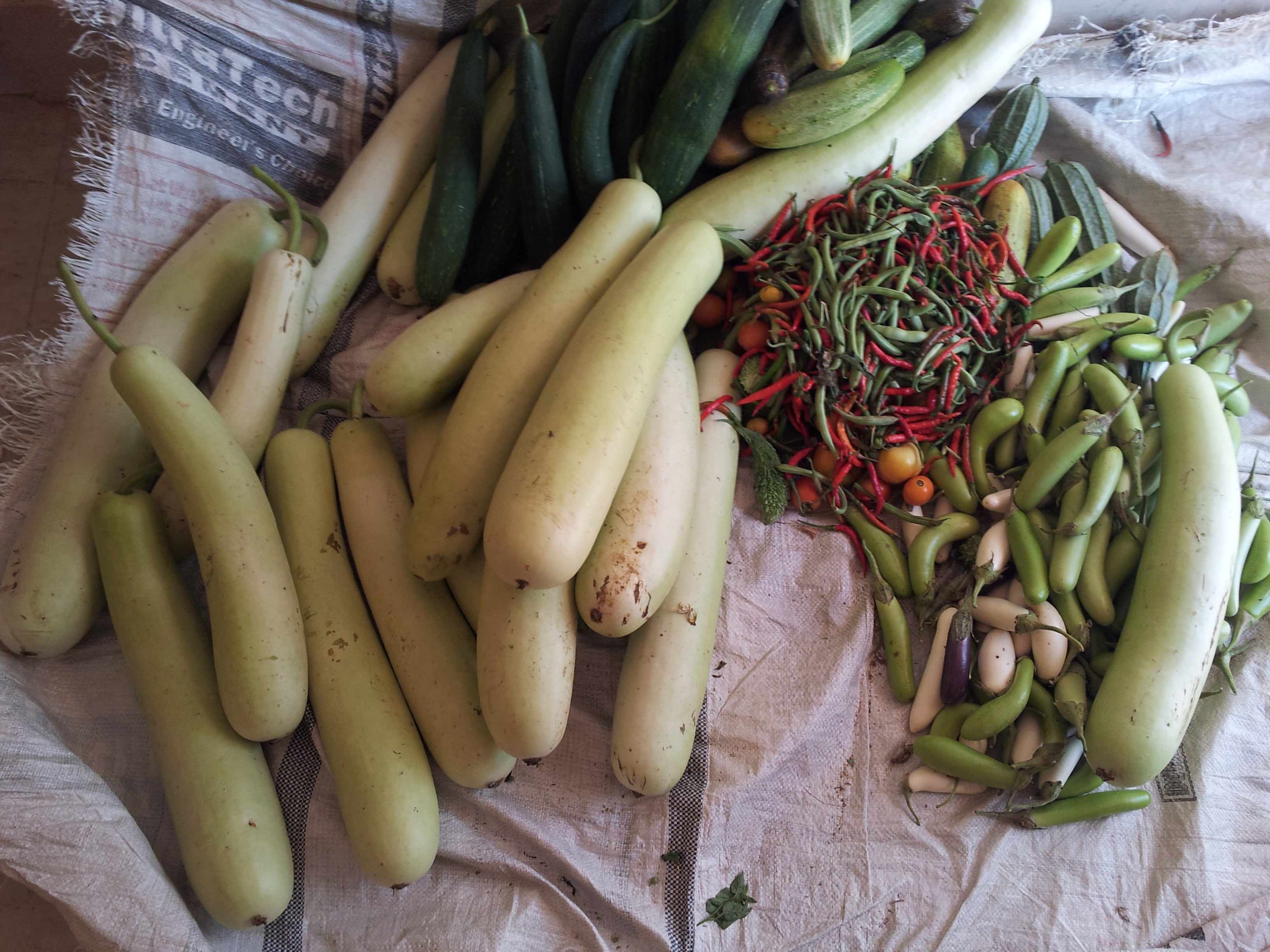Growing plants around the house is a very refreshing hobby which would give you a lot of peace of mind. Well, with the rates of vegetables rising in jet speed I thought I have to share some of my expertise as an agriculturist in growing vegetables in smaller or larger spaces available around your homes.
When you go to the market with Rs 100 you might end up bringing just one or two kilos of your favourite vegetables, which was not seen some time earlier. Also you have to keep in mind that these vegetables too have become a victim to commercialisation.
There are pesticides, insecticides, fertilizers and chemicals used for ripening, flowering, fruiting and so on. All this has brought about a situation that every vegetable or fruit that you eat is full of chemicals, chemicals and chemicals.
Grow Your Own Veggies
So my advice for today?s families would be to grow your own veggies in the space that is available for you.
Even a small patch is enough, if you are living in flats you can use pots to grow vegetables and your balcony and terrace for growing your food.
Grow them organically
This is the most important part of growing veggies at your own home. You can use organic fertilizers and plant protection methods to bring out the best vegetables that are very safe for your children and family.
You can give this food to your family without worrying about the ill effects of chemicals. Your complete family health would improve and you would really feel better.
Field
This is of three types
- Pots
You can use ready made pots, used battery, tin containers, plastic bags, cement boxes, bamboos, and banana stem and so on.
- Smaller plot
- Larger plot
The First Step
The first step is to choose the place where you want to grow vegetables. A patch of 5 X 5 feet would also do, this is the minimal, and as the patch size grows so would your vegetable varieties and quantity.
Then check the quality of soil by taking a handful of soil and pressing it tight. If the soil is sandy it would just flow away, loamy and clay loam soil stick on to your hand. The latter two are good for gardening.
Next, bring your kitchen waste water and water channels from your bathroom etc to the garden so that you are able to grow veggies from waste water of your home itself.
You have to check if your garden has good soil, there must less stones and other chemical ingredients like cement or lime and so on.
Seedling Preparation
Most vegetables such as tomato, chillies, brinjal and so on can not be sown as such a nursey has to be prepared and seeds have to be sown. After about 15 days or more the seedlings are generally transplanted. So you have to demark a place for such a nursery.
If you are planning to plant 10 chilly plants you can use a pot to raise a nursery. You can easily plant the seedling in plastic bags or pots thereafter.
Fertiliser
I would strongly recommend you to choose a small pit or even a pot for making your own fertiliser with household organic wastes; this along with a small quantity of farmyard manure would do the required magic.
Pesticides
I shall in detail tell you about crop protection that can be produced by yourself at home which would drive away unwanted pests that may cause problem in vegetable growth.
We could thus begin with vegetable that can be planted this winter and move on..from the next post..stay connected.


